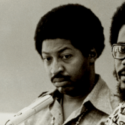 In the wake of massive nationwide protests after the murder of George Floyd, Confederate monuments are being taken down and colleges and universities are considering plans to remove the names of Confederate generals and supporters of slavery from campus buildings and facilities.
In the wake of massive nationwide protests after the murder of George Floyd, Confederate monuments are being taken down and colleges and universities are considering plans to remove the names of Confederate generals and supporters of slavery from campus buildings and facilities.
But what may come as a surprise to many readers, is the fact that buildings on the campuses of some historically Black colleges and universities also bear the names of men who supported the institution of slavery.
State-operated universities in the South, under the control of White politicians in states where Blacks were not allowed to vote, had free reign to name buildings for anyone they chose. And often these naming decisions honored the defenders of slavery. Later, presidents of publicly operated HBCUs were dependent on the goodwill of state governors and legislators for the funding that kept these campuses open for Black students. Many did not want to rock the boat by calling for name changes in fear of losing their already low state appropriations.
Now state-operated universities are emboldened to call for change. Alabama State University in Montgomery announced that it has begun the process to change the name of some buildings on campus. For example, Bibb Graves Hall on the Alabama State campus is named for a segregationist governor who was a member of the Ku Klux Klan
 Quinton Ross, president of Alabama State University, said in a statement that he had “requested a review of the names on campus buildings for consideration of removal based on connections to or leadership of racist organizations, policies or political activity. The results of that review will be part of a presentation and recommendations that I will make to the board of trustees.
Quinton Ross, president of Alabama State University, said in a statement that he had “requested a review of the names on campus buildings for consideration of removal based on connections to or leadership of racist organizations, policies or political activity. The results of that review will be part of a presentation and recommendations that I will make to the board of trustees.
“We understand that the names have become a part of ASU history and may have sentimental significance for some of our alumni,” Dr. Ross’ statement continued. “But as leaders of the university that was at the heart of the modern civil rights movement, we feel that we must be proactive in our response to the pervasive and public displays of racism in this country.”










